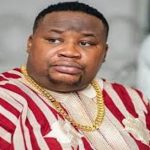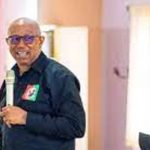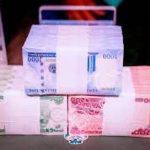Buhari Corrupted By Power, Or So It Seems?
LAGOS SEPTEMBER 21ST (NEWSRANGERS)-In June 2016, about 13 months after he was sworn in as Nigeria’s President, Muhammadu Buhari published a commentary on the Wall Street Journal; he titled it The Three Changes Nigeria Needs. The then 73-year-old was voted into power on the mantra of change and it was a right move to tell the world how he intended to bring about the change he promised.
The First thing Buhari said Nigeria needed was a restoration of trust. He noted that his government had begun to tackle corruption and mismanagement. But he added that fighting corruption was not enough; “We need accountable government and a public sector that can do more with less.” To many Nigerians, the president failed in this regard.
The Nigerian President also raised the need to rebalance the economy by reducing imports, empowering entrepreneurs and producers, increasing exports and productivity and improving the investment climate and ease of doing business.
Buhari also noted that government needed to regenerate growth; repositioning the economy by attracting investment in domestic infrastructure. “Investment in our power infrastructure, restructuring of the state-run oil and gas sector and development of other industries such as solid minerals, metals and petrochemicals will help to create a virtuous circle of growth and exports, while creating jobs and reducing poverty.”
With the president disowning a campaign document, which Nigerians tried to hold him to, early in his presidency, it is safe to ask questions about the changes he knows Nigeria needs, clearly analysed in his 2016 commentary on WSJ. Sadly, President Buhari’s actions over the last three years of his presidency suggest he either did not believe in the changes he wrote about or lacks the ability to deliver them. Worse, as his power has increased, his moral sense has diminished.
Restore Trust
If Buhari succeeded in restoring Nigerians’ trust in the government and its institutions, his re-election would have been as good as won. But rather than building on the goodwill he enjoyed ahead of the 2015 elections, the president has given many Nigerians who supported him reasons to question their decision. The Nigerian president hardly talks to the people who voted him in. Even when he was ill and some were genuinely concerned about the well-being of their leader, not enough information was released to the public while he was away for more than 100 days. He hardly ever communicates with the people, and this has often raised doubts even when his intentions are true.
Nan S. Russell, the author of Trust, Inc.: How to Create a Business Culture that Will Ignite Passion, Engagement, and Innovation once wrote about how to elevate communication to build trust. In the article, he highlighted the need for leaders, who want to build or restore trust, to get perspective on what matters to others and increase dialogue with the people they lead. He wrote about thoughtful transparency, which he noted was not knowing everything or telling everything. “It’s creating an environment where people can trust they’ll have the pertinent information they need….” Russell also wrote about the need for leaders looking to gain the trust of their followers to demonstrate behavioural integrity by always doing what they say. To many Nigerians, President Buhari has failed in all of these. Complaints about the selectivity of his fight against corruption hardly ever leaves the news. He has also been accused of nepotism on several occasions. Even if his accusers were wrong, many would expect the president to act in a way that portrays him as being sensitive to the pulse of his people. But Buhari is a man who does what he believes is right, regardless of what anyone says or feels.
Rebalance our economy
President Buhari saw the need to re-balance the Nigerian economy. Highly reliant on oil, a drop in global oil prices often have a debilitating effect on Nigeria’s economy. A drop in global oil prices was responsible for Nigeria’s 2016 recession, its first since 2004. While he often acknowledges the need to diversify the Nigerian economy, he has never really committed to it, and was more particular about the need to increase exports and reduce imports, in his article. In this, he succeeded. Nigeria recorded a trade balance of N4.03 trillion ($13.2 billion) in 2017, as against a negative balance of N290 billion in 2016. As at June 2018, the country’s trade surplus had widened to N887.6 billion. source: tradingeconomics.com
The Nigerian president also wrote about empowering entrepreneurs and manufacturers, and lowering taxes on small businesses, as well as provide development funding for ‘priority sectors’ such as agriculture. He has also done fairly okay in these areas, although many will disagree.
Regenerate growth
Mr Buhari’s last point in his WSJ article stressed the need for Nigeria to attract investment in domestic industries and infrastructure, especially power. However, his government has not done enough to assure the investing community that Nigeria is a safe haven for their investments. Policy uncertainties have discouraged many who may be considering investing in Nigeria. The power sector, for instance, has not enjoyed the right kind of investments. Even the private investors in the sector are seeking exit. Actions of government agencies against foreign companies such as MTN and Standard Chartered Bank also leaves a lot to be desired. How do you encourage foreign investment by staging shakedowns against foreign-owned businesses?
Forget the new breweries (Nigerians drink more when in sorrow); investors are scared of coming to Nigeria. Unemployment is still high and the country has amassed huge debts. As at June, Nigeria’s total debt profile had risen to $73.21 billion.
The president has also shown on different occasions that truth was anathema to him. Many who have made pronouncements backed by facts about his government have been vehemently attacked. The latest is one of one of the largest banking and financial services organisations in the world HSBC. The Bank had in a report said a return of Buhari to power in 2019 would stunt the Nigerian economy. But rather than examine the issues raised by HSBC which is similar to the ones earlier raised by the Economist Intelligence Unit (EIU), the president, through his official spokesperson attacked the Bank, accusing it of aiding a former Head of State to loot the Nigerian treasury.
“A bank that soiled its hand with “millions of US dollars yet-to-be-recovered Abacha loot”, and continued until a few months ago to shield the stolen funds of one of the leaders of the Nigerian Senate has no moral right whatsoever to project that a “second term for Mr. Buhari raises the risk of limited economic progress and further fiscal deterioration”,” Garba Shehu said in a statement.
“From the facts available to our investigation agencies, HSBC’s put down on President Buhari is no more than an expression of frustration over the administration’s measures put in place which has abolished grand corruption, the type which this bank thrives on in many countries.
“They may also just be out to discredit the President out of the fear of sanctions and fines following the national assets that are stolen.
“Our investigation agencies believe that HSBC had laundered more than USD 100,000,000 for the late General Sani Abacha in Jersey, Paris, London and Geneva.
“Among these accounts on the records are: AC: S-104460 HSBC Fund Admin Ltd. Jersey ($12,000,000); AC 37060762 HSBC Life (Europe), U.K ($20,000,000) and AC: 38175076 HSBC Bank Plc. U.K ($1,600,000).
“The bank is also suspected in the laundering of proceeds of corruption involving more than 50 other Nigerians, including a serving Senator as earlier indicated,” the presidential spokesperson stated.
The Nigerian government’s reaction to the HSBC report came as a disappointment to many Nigerians, who would rather their leadership conducted itself in a more honourable manner. But it also shows that the president is feeling the heat. Buhari has lost the support of many who voted him in 2015, and he might lose the presidency.
In his WSJ article, Buhari had mentioned a supposed decimation of Boko Haram as one of his major achievements in his first year in office, but it seems like for every life he saved from the militant group, he lost to killer herdsmen whose murderous activities in major food producing states in Nigeria has also affected food production in the country.
But regardless of his failures, Buhari still has his faithfuls, always battle-ready to attack anyone who points out the 75-year-old’s mistakes. Their love is unconditional and policy discussions that show Buhari’s frailty are, to them, nothing but spews of hatred.
Things will continue to heat up as the 2019 elections draw nearer. President Buhari still has a few months to prove HSBC, EIU and other wrong. Whether he would do that or dig up clapback-worthy information about everyone who criticizes him remains to be seen.
The Nerve
Short URL: https://newsrangers.com/?p=18875
































